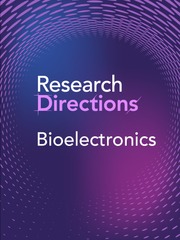Context
There are a number of concerns with the use of bioelectronic sensors for environmental monitoring:
-
1. Durability: Bioelectronic sensors can be vulnerable to physical damage and degradation from exposure to harsh environmental conditions.
-
2. Interference: Bioelectronic sensors can be susceptible to interference from other electrical signals or devices, leading to inaccurate readings.
-
3. Power supply: Bioelectronic sensors often require a power source to operate, which can be a challenge in remote or inaccessible locations.
-
4. Sensitivity: Bioelectronic sensors can be sensitive to a wide range of environmental variables, making it difficult to isolate the specific signals of interest.
-
5. Data processing: Bioelectronic sensors generate substantial amounts of data, which can be challenging to process, analyse, and interpret.
-
6. Cost: Bioelectronic sensors can be expensive to manufacture, maintain, and replace, which can limit their widespread deployment.
-
7. Biofouling: Bioelectronic sensors can be susceptible to fouling or build-up of biological material on their surfaces, reducing their performance over time.
These concerns need to be addressed in order to ensure the reliability and accuracy of bioelectronic sensors for environmental monitoring. This may involve developing new technologies, improving device design, and implementing best practices for data management and analysis.
How to contribute to this Question
If you believe you can contribute to answering this Question with your research outputs find out how to submit in the Instructions for authors (https://www.cambridge.org/core/journals/research-directions-bioelectronics/information/author-instructions/preparing-your-materials). This journal publishes Results, Analyses, Impact papers and additional content such as preprints and “grey literature.” Questions will be closed when the editors agree that enough has been published to answer the Question so before submitting, check if this is still an active Question. If it is closed, another relevant Question may be currently open, so do review all the open Questions in your field. For any further queries check the information pages (https://www.cambridge.org/core/journals/research-directions-bioelectronics/information/about-this-journal) or contact this email (bioelectronics@cambridge.org).
Competing interests
The authors declare none.



